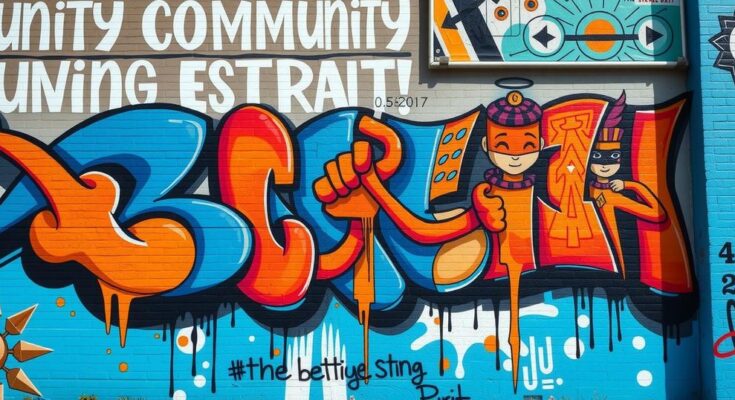The article discusses a recent Ugandan court ruling that mandates the renaming of streets and monuments honoring British colonial figures. Activists view this as a significant victory in recognizing Ugandan dignity and culture. The topic evokes parallel discussions in Saint Lucia regarding the need for similar decolonization efforts and honoring local heroes who fought against colonial oppression.
An article titled “Campaigners Celebrate Court Ruling to ‘Decolonise’ Kampala” details a significant ruling from Uganda’s high court aimed at renaming streets and monuments that honor British colonial figures. The ruling follows a five-year campaign spearheaded by activists advocating for the recognition of Ugandan culture and dignity. The court’s decision requires the removal of names such as Major General Henry Edward Colville and Frederick Lugard, figures associated with colonial oppression in Uganda.
The campaign gained momentum in 2020 when over 5,800 individuals signed a petition, urging lawmakers to expedite the decolonization process. Additionally, human rights activist John Ssempebwa filed a lawsuit asserting that the names of colonial streets and parks infringed upon the Ugandan right to dignity and freedom from cruelty.
Apollo Makubuya, a leading lawyer in the campaign, hailed the ruling as a vital advancement in acknowledging human dignity, stating that it is necessary to reject the legacy of colonial oppression and instead celebrate authentic Ugandan heritage. Meanwhile, Kampala’s Lord Mayor, Erias Lukwago, expressed some disappointment regarding the depth of the judgment but reinforced the necessity of decolonization.
In contrast, Nicholas Opiyo, a human rights lawyer, criticized the ruling as a futile symbolic gesture. He contended that preserving the names of colonial figures serves as a reminder of Uganda’s history, emphasizing the importance of confronting rather than erasing the past.
This article resonates with ongoing discussions in Saint Lucia regarding the need to rename colonial sites and better acknowledge local figures who fought against oppression. The National Reparations Committee has initiated discussions on similar actions in the Caribbean, advocating for a deliberate shift in how local histories are commemorated.
Saint Lucians often mistakenly celebrate their colonial past, overlooking the grim realities that accompanied the struggles of freedom fighters. Many streets and landmarks in Saint Lucia honor French figures with questionable legacies concerning slavery and colonial violence. It is proposed that more names representing local heritage and resistance should be adopted to replace those honoring oppressors and colonizers.
Historical figures such as Petronille Dwine and Flor Gaya have recently gained recognition, but many others who contributed to the island’s history remain largely unacknowledged. Notably, various Saint Lucians have made significant contributions both regionally and internationally, yet their legacies are often eclipsed by colonial narratives.
Discussions around decolonizing the narrative surrounding independence and representation have become increasingly prominent. As Saint Lucia approaches its 50th independence anniversary in 2029, it is suggested that local leaders should actively engage in recognizing and memorializing figures who fought for freedom and dignity. Ultimately, a thoughtful examination of names and histories is vital to shaping a more profound understanding of identity for Saint Lucians today.
The implications of the court ruling in Uganda highlight a broader movement towards decolonization that resonates in other former colonies, including Saint Lucia. As communities confront their colonial pasts, there is a pressing need to honor figures who contributed positively to local histories, rather than idolizing those associated with oppression. The initiative to rename streets and landmarks serves as an important step towards reclaiming cultural identity and fostering an inclusive narrative that respects the legacy of freedom fighters. With continued advocacy, there exists potential for meaningful change in the recognition of local histories and figures.
Original Source: thevoiceslu.com




